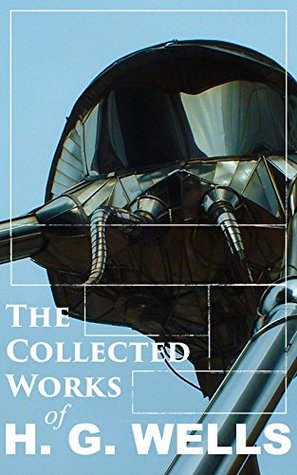More on this book
Community
Kindle Notes & Highlights
by
H.G. Wells
Started reading
May 27, 2019
something
I see now clearly and calmly, what I then felt obscurely and with an unbalanced intensity, that my conditions were intolerable. My work was tedious and laborious and it took up an unreasonable proportion of my time, I was ill clothed, ill fed, ill housed, ill educated and ill trained, my will was suppressed and cramped to the pitch of torture, I had no reasonable pride in myself and no reasonable chance of putting anything right. It was a life hardly worth living. That a large proportion of the people about me had no better a lot, that many had a worse, does not affect these facts.
Much of the complex essentials of love were altogether hidden. One read these things, got accidental glimpses of this and that, wondered and forgot, and so one grew. Then strange emotions, novel alarming desires, dreams strangely charged with feeling; an inexplicable impulse of self-abandonment began to tickle queerly amongst the familiar purely egotistical and materialistic things of boyhood and girlhood. We were like misguided travelers who had camped in the dry bed of a tropical river. Presently we were knee deep and neck deep in the flood.
On no conceivable grounds was there any sense in modern war. Save for the slaughter and mangling of a multitude of people, the destruction of vast quantities of material, and the waste of innumerable units of energy, it effected nothing.
The old war of savage and barbaric nations did at least change humanity, you assumed yourselves to be a superior tribe in physique and discipline, you demonstrated this upon your neighbors, and if successful you took their land and their women and perpetuated and enlarged your superiority. The new war changed nothing but the color of maps, the design of postage stamps, and the relationship of a few accidentally conspicuous individuals.
Here were we British, forty-one millions of people, in a state of almost indescribably aimless, economic, and moral muddle that we had neither the courage, the energy, nor the intelligence to improve, that most of us had hardly the courage to think about, and with our affairs hopelessly entangled with the entirely different confusions of three hundred and fifty million other persons scattered about the globe, and here were the Germans over against us, fifty-six millions, in a state of confusion no whit better than our own, and the noisy little creatures who directed papers and wrote books and
...more
The thing was, in fact, an enormous irrational obsession, it was, in the microcosm of our nation, curiously parallel to the egotistical wrath and jealousy that swayed my individual microcosm. It measured the excess of common emotion over the common intelligence, the legacy of inordinate passion we have received from the brute from which we came.
this “press” was almost entirely under the direction of youngish men of that eager, rather unintelligent type, that is never able to detect itself aimless, that pursues nothing with incredible pride and zeal,
There were in England and America, and indeed throughout the world, two great informal divisions of human beings — the Secure and the Insecure. There was not and never had been in either country a nobility — it was and remains a common error that the British peers were noble
through the private ownership of land that had resulted from the neglect of feudal obligations in Britain and the utter want of political foresight in the Americas, large masses of property had become artificially stable in the hands of a small minority, to whom it was necessary to mortgage all new public and private enterprises, and who were held together not by any tradition of service and nobility but by the natural sympathy of common interests and a common large scale of living.
They believed there was not enough of anything to go round, they believed that this was the intention of God and an incurable condition of life, and they held passionately and with a sense of right to their disproportionate share.
that created their situation, was called “class envy,” and gently born preachers reproached us for the mildest resentment against an injustice no living man would now either endure or consent to profit by.
None of her sort of people ever did seem to understand such livid flashes of hate, as ever and again lit the crowded darkness below their feet. The thing leapt out of the black for a moment and vanished, like a threatening figure by a desolate roadside lit for a moment by one’s belated carriage-lamp and then swallowed up by the night. They counted it with nightmares, and did their best to forget what was evidently as insignificant as it was disturbing.


